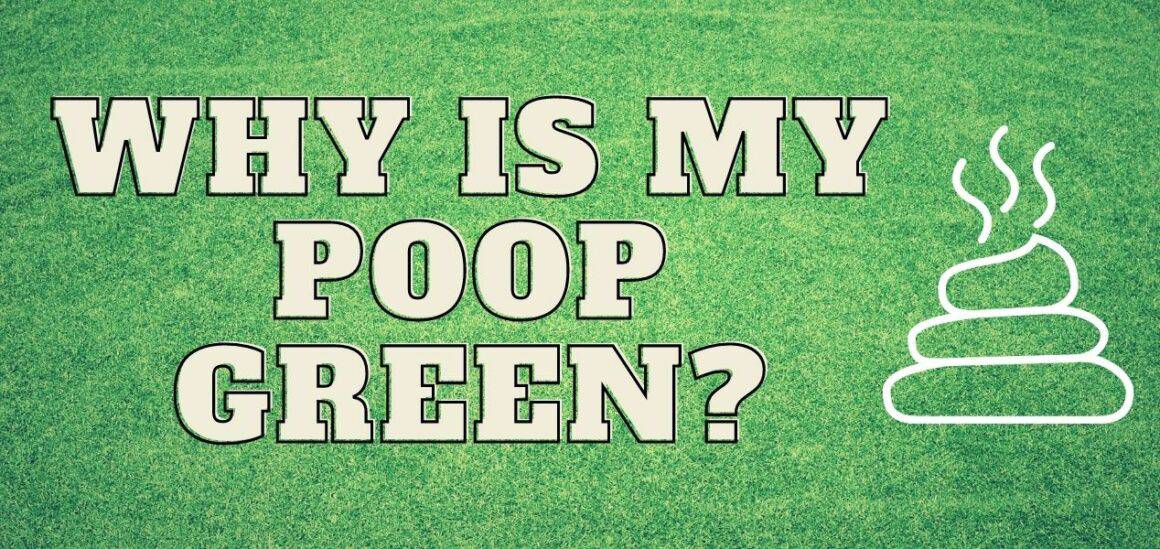Did you know that your poop reveals a lot about your health? Its color, form, frequency, and odor, are all crucial indicators of how well your gut is functioning. So, why is my poop green when I didn’t eat anything green?
We look at why your poop is green, whether it’s a cause for concern, and whether you should panic and see a doctor.
Why Is My Poop Bright Green?
Green poop is not uncommon. It can occur as a result of diarrhea or from what you eat. When food doesn’t have enough time to break down in your digestive tract. The green color is from the accumulation of bile in your intestines.
If you’re worried that your poop is abnormal, there are a few important factors to look for before you start getting worried. Look for green poop that smells different from how your poop usually smells, or if it lasts for a few days.
If the problem doesn’t improve after 48 hours when you’ve eliminated the foods that you think might be causing the change in your poop, it may be time to make an appointment with your doctor.
Should You Be Worried?
Green poop in your toilet bowl may be unsettling, but it’s usually not a cause for concern. What you eat is frequently reflected in the color of your poop. Consuming blueberries, for example, or taking iron supplements can cause black bowel movements.
So, you look into your toilet bowl and it looks like Shrek took his morning dump. What’s happening?
Reasons Your Poop Is Green
There are many reasons that your poop may be green.
For one, taking antibiotics. Antibiotics can kill your gut flora, which has good bacteria that help digest food, make vitamins such as vitamin K, and help in boosting your immune system’s defenses. This has a significant impact on the way your stool looks.
Also depending on how you digest some pain medicines and over-the-counter vitamins, the color of your poop may change.
Additionally, bile, which is formed in the liver and stored in the gallbladder, aids in fat digestion and has a natural green tint. It’s normally broken down in the intestines, but it can sometimes come out in your poop, which changes the color.
For the first few days of life, a newborn’s poop may be green, before changing to yellow or brown. The first poop after the baby is born is medically called meconium and can look anywhere from black to green.
Conditions such as Crohn’s disease and irritable bowel syndrome limit nutrient absorption in the gut and can alter poop composition.
Though parasites are uncommon in the industrialized world, they can cause green poop and are most likely to affect you if you have been outside the country or eaten raw food.
Foods That Cause Green Poop
What you’re eating is most likely the cause of your green poop, especially if you eat leafy green vegetables like broccoli, kale, and spinach.
The green pigment in plants (called chlorophyll) gives those foods their color and can also change the color of your poop.
Other food that could cause your poop to turn green include:
- Blueberries or other blue or purple fruits and vegetables
- Green fruits such as avocados, green apples, and honeydew melon
- Hemp seeds
- Herbs such as basil, cilantro, and parsley
- Matcha, which is a powdered green tea
- Green Supplements like Athletic Greens
- Pistachios
Green food coloring can also be blamed for your poop’s appearance. When the source of the green poop is eliminated from your body, it should return to its normal color within a day or two.
Is It A Sign Of Cancer?
There are several different colors of poop that can be related to tumors or cancer, but green is usually not one of them.
The color of your poop can tell you a lot about what’s going on in your body. A change in the color of your poop is not always a sign of a disease that needs to be addressed right away.
It’s a different story when the color change is accompanied by additional symptoms. If you notice blood in your poop, you’re feeling nauseous, have extreme abdominal pain, unexplainable tiredness, severe bloating, or vomiting, you should seek medical attention regardless of the color of your poop.
Reasons For Concern
It’s crucial to consider how you feel when you go to the restroom because it shouldn’t be a painful experience. It shouldn’t be difficult to poop. If you find it particularly difficult, you might just be dehydrated.
It also shouldn’t hurt as it travels through the anal canal, and if it does it could be a sign of hemorrhoids or an anal tear.
It’s not natural to have a persistent sensation of urgency that drives you to stop what you’re doing and go, or to feel as if you’re straining to pass stool or are in pain. If you’re concerned about your intestinal health, make a diary of your symptoms, what you have been eating, what your poop looks like, and pay a visit to your doctor.
When To Consult A Doctor
Seek medical attention if you’ve had diarrhea for more than three days. Long-term, untreated diarrhea can cause dehydration, nutritional deficiency, and even hospitalization.
If passing green poop is followed by more severe symptoms, such as stomach pain, blood in the stool, or nausea, you should see a doctor immediately.
While discussing the reason for your visit can be embarrassing, a doctor can evaluate your list of medications, food, and other health conditions to find possible causes for your green poop.
How To Improve Bowel Health
Consuming foods high in fiber, such as fruits and vegetables, wheat and grains, nuts, seeds, etc., will improve your gut health and ease and avoid constipation. Fiber-rich foods include spinach, peppers, blueberries, oats, quinoa, popcorn, chia seeds, almonds, and more.
Avoiding sugary foods, red meat, and fried foods will also assist enhance your bowel health. It’s also important to drink plenty of water.
Key Takeaways
So, to answer the question, “why is my poop green when I didn’t eat anything green?”
It is most likely due to a food, drink, or supplement that you have recently ingested. It should pass in due course and not present any long-term health issues.
However, if your stool remains green for an extended period of time you should consult your doctor.
Disclaimer: this article does not constitute or replace medical advice. If you have an emergency or a serious medical question, please contact a medical professional or call 911 immediately. To see our full medical disclaimer, visit our Terms of Use page.
Related Articles
- Does Magnesium Make You Poop?
- Does Apple Juice Make You Poop?
- Does Collagen Make You Poop?
- Does Sea Moss Make You Poop?
- Does Pepto Bismol Make You Poop Black?
- Stages of Hand, Foot, and Mouth Disease
- Drinks That Make You Poop Immediately
- Do Probiotics Make You Poop?
- Does Chlorophyll Make You Poop?
- Does Matcha Make You Poop?










